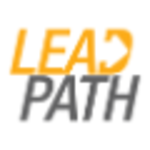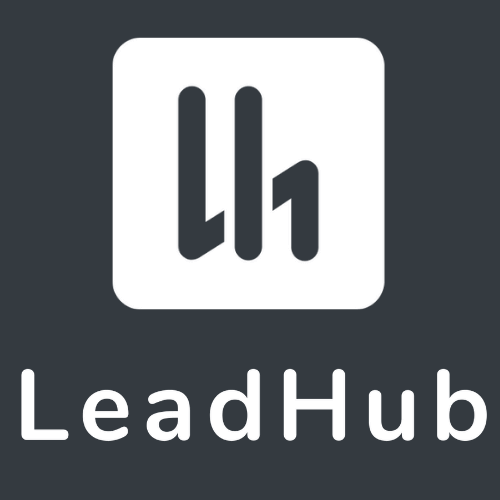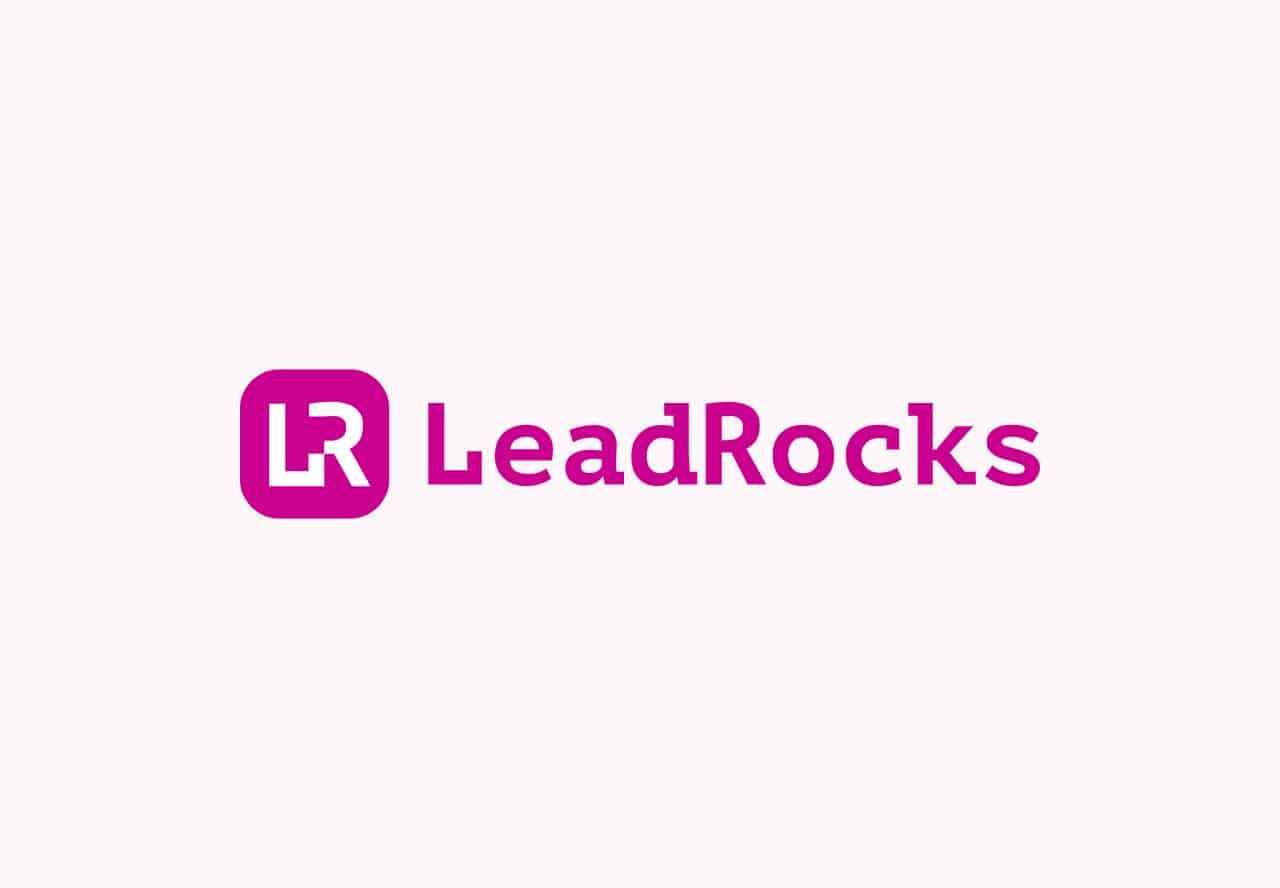Description

DigiLead - Lead Management System

LeadPath
Comprehensive Overview: DigiLead - Lead Management System vs LeadPath
As of my latest update, there might not be specific products named "DigiLead - Lead Management System" and "LeadPath" publicly known. It's possible that these could be niche products, newer market entrants, or fictional names for illustrative purposes. Hence, I will offer a general outline of what features and comparisons could be expected in typical lead management systems while also considering market dynamics and differentiators. If these are actual products, you may want to look for the latest updates directly from their developers or market reports.
a) Primary Functions and Target Markets
Lead Management Systems like DigiLead or LeadPath generally offer the following primary functions:
-
Lead Capture: Automate lead capturing from various sources such as websites, social media, webinars, and online advertisements.
-
Lead Tracking and Scoring: Monitor interactions with leads and assign scores based on potential interest and likelihood to convert.
-
Lead Distribution: Automatically distribute leads to appropriate sales reps based on predefined rules to enhance response times.
-
Customer Relationship Management (CRM) Integration: Seamless integration with CRM systems to ensure smooth transition and management of leads.
-
Analytics and Reporting: Generate reports and provide insights on lead conversion rates, sources, and sales performance.
-
Communication Tools: Facilitate communication with leads through emails, calls, and messages directly within the platform.
-
Automation: Streamline processes through workflows and automated tasks to minimize manual workload.
Target Markets:
- Small to Medium Enterprises (SMEs) looking to streamline their sales processes.
- Large Corporations wanting customized solutions to handle vast volumes of leads.
- Industries like real estate, insurance, financial services, and any sales-driven sectors where lead management is critical.
b) Comparison in Terms of Market Share and User Base
If DigiLead and LeadPath exist in direct competition, their market share and user base would be influenced by:
-
Brand Recognition: Established companies might dominate the market while newer entrants gradually build their presence.
-
Pricing Models: SaaS pricing can influence adoption, where tier-based offerings might attract different business sizes.
-
Feature Set: Systems with more comprehensive features are appealing to larger enterprises, whereas simpler solutions might suit SMEs.
-
Integration Capabilities: Products that easily integrate with existing tech stacks typically have a larger user base.
To obtain precise market share data, you might consult industry reports from organizations like Gartner, Forrester, or specific B2B software platforms providing comparative analyses.
c) Key Differentiating Factors
-
User Interface and Experience: One system could prioritize a user-friendly interface, which can significantly impact user satisfaction and the adoption rate.
-
Customization Options: The degree to which a platform allows customization to adapt to specific business needs can be a critical differentiator.
-
Scalability: Solutions may differ in their ability to scale with growing business demands, affecting their suitability for various company sizes.
-
Advanced Analytics Capabilities: Some platforms may offer superior data visualization and AI-driven insights, which can be appealing to data-driven organizations.
-
Customer Support and Training: The quality and type of customer support (24/7, multichannel) and onboarding services can distinguish one product from another.
-
Security Features: Enhanced security measures and compliance with international standards (e.g., GDPR) might be offered by one system over another.
In summary, when analyzing lead management systems like DigiLead and LeadPath, it's essential to consider the specific features, target audience, market dynamics, and individual company needs to understand their positioning and advantages thoroughly.
Contact Info

Year founded :
Not Available
Not Available
Not Available
Not Available
Not Available

Year founded :
2015
+1 312-219-9660
Not Available
United States
http://www.linkedin.com/company/leadpath
Feature Similarity Breakdown: DigiLead - Lead Management System, LeadPath
When comparing two lead management systems like DigiLead and LeadPath, it's important to analyze their features, user interfaces, and unique offerings to understand how they stand out in the competitive marketplace. Here's a breakdown:
a) Core Features in Common
Both DigiLead and LeadPath are designed to streamline the lead management process, and typically, they share the following core features:
-
Lead Capture and Import: Both platforms offer robust tools to capture leads from various sources such as web forms, emails, and third-party integrations.
-
Lead Tracking and Management: They provide comprehensive dashboards for tracking lead status and progress through the sales funnel.
-
Contact Management: Both systems allow users to store and manage contact information effectively.
-
Automated Lead Scoring: They include algorithms or tools to assess lead quality based on predefined criteria.
-
Workflow Automation: Both offer automation features to enable automatic lead assignment, email follow-ups, and task reminders.
-
Reporting and Analytics: Tools for generating reports and analyzing lead data to optimize sales strategies are available in both systems.
-
Integration Capabilities: They both offer integrations with CRM systems, email marketing tools, and other sales applications.
-
Security and Compliance: Ensuring that lead data is stored securely and in compliance with data protection regulations is a standard feature.
b) User Interface Comparison
When comparing the user interfaces of DigiLead and LeadPath, several aspects might be considered:
-
Design and Usability:
- DigiLead: Typically offers a modern, intuitive interface with easy navigation and customization options. It is known for its responsive design, making it accessible across multiple devices.
- LeadPath: Also provides a user-friendly experience but may focus more on providing extensive data visualization tools right on the dashboard, which appeals to users who rely heavily on analytics.
-
Customization:
- Both platforms generally offer customizable components, though DigiLead might offer more dynamic customization options allowing users to create bespoke workflows and dashboards.
-
Learning Curve:
- The learning curve may differ depending on the UI complexity. DigiLead might have a slightly easier onboarding experience with interactive tutorials, whereas LeadPath could offer in-depth knowledge bases and community forums for support.
c) Unique Features
-
DigiLead:
- AI-Powered Insights: It may offer advanced AI capabilities that provide predictive insights and suggest next best actions for lead conversion.
- Social Media Integration: Robust integration with social media platforms for generating leads and tracking social media-driven campaigns directly from the dashboard.
-
LeadPath:
- Lead Nurturing Campaigns: A unique feature that might include a specialized tool for crafting multi-channel lead nurturing campaigns with drag-and-drop simplicity.
- Marketplace for Extensions: An online marketplace where users can access plugins and extensions to enhance the platform’s functionality.
These comparisons provide a foundational understanding of how DigiLead and LeadPath might align and differ in the lead management space. It's important to verify these features directly from official resources or product demonstrations to ensure they meet specific business needs.
Features

Not Available

Not Available
Best Fit Use Cases: DigiLead - Lead Management System, LeadPath
To determine the best fit use cases for DigiLead - Lead Management System and LeadPath, it's important to examine their features, strengths, and how they cater to various industry needs and company sizes. Here’s a breakdown:
DigiLead - Lead Management System
a) Best Fit for Businesses or Projects:
-
Small to Medium Enterprises (SMEs): DigiLead is highly suitable for small to medium-sized businesses looking to streamline their lead management process. Its straightforward implementation and user-friendly interface make it an excellent choice for businesses without a dedicated IT team.
-
Industries with High Lead Volume: Businesses in real estate, education, and retail often handle a large volume of leads. DigiLead can efficiently manage and nurture these leads throughout the sales funnel.
-
Marketing Agencies: Agencies that require robust tracking of marketing campaigns and lead performance can benefit from DigiLead’s analytics and reporting tools, which provide valuable insights into conversion rates and lead sources.
d) Cater to Different Industry Verticals or Company Sizes:
-
Industry Verticals: DigiLead caters well to industries like real estate, finance, and education by offering customization options to match their specific sales processes. Its features support complex sales cycles and long-term lead engagement.
-
Company Sizes: Primarily targets small to mid-sized companies due to its cost-effectiveness, ease of deployment, and scalability.
LeadPath
b) Preferred Scenarios for Use:
-
Large Enterprises with Complex Sales Processes: LeadPath is ideal for larger organizations with sophisticated sales pipelines and numerous stakeholders involved in the decision-making process. Its advanced features support complex workflows and integration with other enterprise systems.
-
Businesses Needing Advanced Reporting and Analytics: Companies that rely heavily on data-driven decision making will find LeadPath’s comprehensive analytics and reporting capabilities beneficial for gaining deeper insights into customer behavior and optimizing lead strategies.
-
Industries Requiring High Customization: Industries like technology and healthcare, which may need highly tailored lead management solutions due to their unique regulatory and operational requirements, can leverage LeadPath’s customization capabilities.
d) Cater to Different Industry Verticals or Company Sizes:
-
Industry Verticals: LeadPath is versatile and serves vertically integrated industries such as manufacturing, healthcare, and technology by offering customizable workflows and detailed analytics.
-
Company Sizes: Better suited for large organizations or enterprises due to its robust feature set, which includes intricate CRM integrations, detailed reporting, and large-scale data handling capabilities, making it a comprehensive solution for managing extensive lead databases.
Summary
- DigiLead is best suited for SMEs and industries dealing with high lead volumes requiring straightforward lead tracking and conversion.
- LeadPath excels in large enterprises with complex sales processes and industries needing in-depth analytical and customization capabilities.
Both systems offer industry-specific solutions, with DigiLead focusing on ease of use and LeadPath on depth and integrations, allowing businesses to choose based on their specific operational needs and company size.
Pricing

Pricing Not Available

Pricing Not Available
Metrics History
Metrics History
Comparing undefined across companies
Conclusion & Final Verdict: DigiLead - Lead Management System vs LeadPath
To provide an informed conclusion and final verdict for DigiLead - Lead Management System and LeadPath, let's evaluate both products based on key factors such as features, pricing, user experience, support, and scalability.
a) Best Overall Value:
LeadPath tends to offer the best overall value if you prioritize advanced analytics, seamless integration with other marketing tools, and scalability. It often appeals to medium to large enterprises looking for comprehensive features and integration options. On the other hand, DigiLead is typically more cost-effective, making it an attractive option for small to medium businesses that need essential lead management functionalities without the complexity or higher cost.
b) Pros and Cons:
DigiLead - Lead Management System:
Pros:
- Cost-Effective: Generally more affordable, catering to smaller budgets.
- User-Friendly Interface: Easy to navigate, suitable for businesses with limited technical expertise.
- Essential Features: Provides core functionalities like lead tracking and basic reporting.
Cons:
- Limited Advanced Features: May lack in-depth analytics and sophisticated customization options.
- Scalability Constraints: Might not be the best fit for rapidly growing businesses needing extensive integrations.
LeadPath:
Pros:
- Comprehensive Features: Offers robust analytics, automation, and integration options.
- Scalability: Well-suited for growing businesses or enterprises with complex lead management needs.
- Advanced Reporting: Detailed insights and customizable reporting features.
Cons:
- Higher Cost: Generally more expensive than basic or mid-tier solutions.
- Complexity: Some features may present a steeper learning curve for users without technical experience.
c) Recommendations:
-
Assess Business Needs: Consider your current business size, growth trajectory, and specific requirements. If you need a solution with basic functions and a lower price point, DigiLead may suffice. However, if your business requires more advanced features and has future growth potential, LeadPath would be a suitable choice.
-
Budget Consideration: Align the choice with your budget capabilities. While LeadPath offers more features, its costs might not be justifiable for smaller businesses with straightforward lead management needs.
-
Trial and Feedback: Utilize the free trials or demos offered by these platforms to better understand how each aligns with your business workflow. Gather feedback from your team members who will be the primary users.
-
Look Ahead: Consider future scalability and integration needs. Even if DigiLead supports your current operations, LeadPath might prevent the need for a future switch if expansion is on the horizon.
Ultimately, the best choice will depend on your specific requirements, resources, and growth plans. Both DigiLead and LeadPath have distinct strengths that suit different types of businesses, so align your selection with your strategic goals.
Add to compare
Add similar companies



